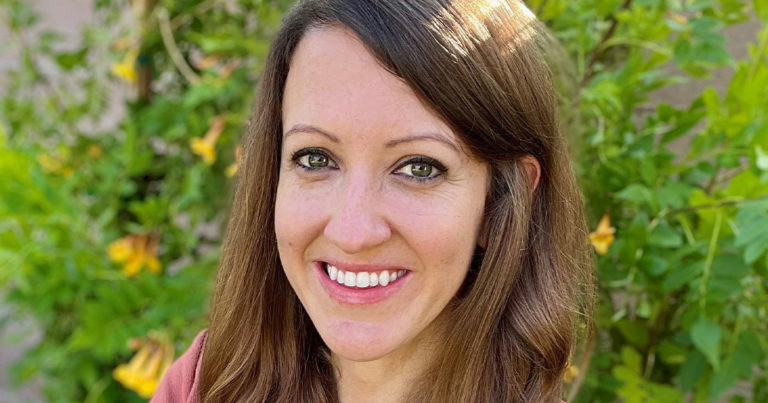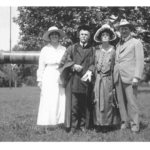Karen Magruder, UK College of Social Work DSW Student, on Researching Use Cases for AI Technology in the Field of Social Work
Even before recent revelations about ChatGPT’s Artificial Intelligence (AI) software, UK College of Social Work Doctor of Social Work (DSW) student Karen Magruder was investigating the opportunities—and challenges—posed by the technology.
Part of Magruder’s decision to earn her DSW mid-career was to gain a deeper understanding of how the field of social work is evolving, and how innovations like AI can be used to improve the profession.
“For my capstone, I’m focusing on artificial intelligence and the implications for social work practice. An example use case would be telehealth and chat bots in mental health applications,” Magruder said.
As an assistant professor of practice at the University of Texas, Arlington, Magruder has already stepped up to engage with other educators and students about the use of AI and best practices in the field.
Career Strategy: Skill Building and Field Practice
Magruder began her career in the nonprofit space, having studied business management as an undergraduate at the University of Arizona. Her first job after college was with the American Cancer Society, where she regularly encountered social workers and was inspired to pursue a career in the field.
“I was doing fundraising and volunteer management and event planning. I saw our patient navigators who were working directly with the patients and helping them with resources–it just seemed like such a cool role.” Magruder said.
She decided to pursue a Master of Social Work and graduated from The University of Texas at Arlington in 2015, putting her degree to work in a variety of roles, from hospice to refugee resettlement to working with individuals who are incarcerated to teaching.
“I am the epitome of showing how broad and eclectic social work can be,” Magruder said. “I’m a nerd and a lifelong learner, and so I’d always thought about a doctorate. In my faculty role now I love teaching, so the Doctor of Social work was perfect because it is practice oriented and I can gain skills in my clinical practice and in teaching as well.”
Magruder applied and was accepted to UK College of Social Work’s online DSW program and is expected to graduate in 2025. She said the flexibility of learning online has been helpful, and added she was surprised at how connected she has been to members of the DSW cohort and faculty who are states away.
“I worried about losing that networking and friendship piece of being ‘in person.’ I’ve been pleasantly surprised by how intentional UK College of Social Work has been at helping me connect with my peers and colleagues,” Magruder said. “It’s been nice making connections with people in Kentucky and all over the country.”
Magruder said she is already applying her learnings from the program in her practice and her own teaching—and her course of study has enabled her to participate fully in the current debate over the use of AI in social work and education.
AI: A New Frontier for Social Work and Education
When ChatGPT was released, Magruder instantly began investigating the software and realized her own research could be used to help understand and inform best practices, in social work and beyond.
“Right after it was released, I tried it to see how the software would perform in discussion, prompting it with answers from my classes that I teach. And for the most part, it was spot on in giving a cohesive summary of information,” Magruder said. “What a powerful learning tool, but also, yikes. As an educator, I just really thought this is huge and it is going to change everything.”
Magruder sprang into action, writing a resource guide for faculty and participating in a training session to explain the software and the opportunities and challenges presented by AI in education. She credits her DSW studies with helping her level up in expertise and says the online program has given her the flexibility to continue working while pursuing this ongoing research.
Magruder is an active participant in the debate around AI applications and how they will impact social work and the field of higher education. Recently, her article on the topic was published in Social Work Today, and she was accepted to present at the upcoming National DSW Conference on “The Age of Artificial Intelligence has Arrived: Implications for Social Work Education.”
“There are certainly concerns and questions about these types of tools that we need to really work through, but with the promise of having a better ability to care for people who typically might not be able to afford or access services, it’s important to investigate these opportunities,” Magruder said. “As I move towards my capstone for the DSW, it’s a fascinating opportunity to think about how we best use this in the field of social work.”





